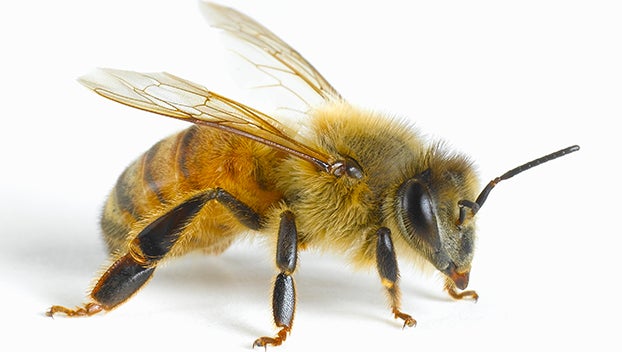New apiary creating buzz at Mississippi State University
Published 7:58 am Monday, April 18, 2022
|
Getting your Trinity Audio player ready...
|
STARKVILLE (AP) — Bees play a part in every aspect of the ecosystem with beekeeping being a hobby or full-time career for some Mississippians.
To bring awareness to the insects’ importance and offer beekeeping classes and workshops, Mississippi State University constructed a new apiary, which will officially open in a few weeks. It will be housed at the Clay Lyle Entomology Complex as a partnership between MSU Extension Service and Mississippi Agricultural and Forestry Experiment Station.
MAFES researcher Priya Chakrabarti Basu, who will be the primary teacher for beekeeping classes, said it will enhance bee research and teaching activities, while giving bees a permanent home at MSU.
“This apiary is geared toward having our own base at Mississippi State University so that we can more easily, safely and conveniently train and teach people about bees while doing research,” Basu said.
MSU has always had bees at the entomology complex but not in this capacity. Audrey Sheridan, Department of Biochemistry, Molecular Biology, Entomology and Plant Pathology Apiculture Extension and MAFES research associate, said having the bees out in the open and unprotected caused two problems for the bees — vandalism of the beehives and no visual barrier between the bees and the public.
“What we had to do in the past was trek the bees in and out whenever we did a workshop, and that was very laborious,” Sheridan said. “It’s actually pretty hard on the bees as well.”
With the help of Extension bee specialist Jeff Harris and MSU Delta Research and Extension Center Head Jeff Gore, Basu and Sheridan worked diligently over the last four months to make their dream of an on-site bee apiary a reality. The 768-square foot permanent fixture with at least 12 hives will give people a place to observe bees in a safe environment, Basu said.
Beekeeping classes and workshops will be offered through Extension and taught by Harris. People interested in raising bees can attend the workshops and learn skills ranging from beginning beekeeping to queen rearing.
“The workshops are a combination of a field component which is outside in the apiary, plus we have a big monitor set up in the lobby where we will teach classes to groups,” Sheridan said.
Along with classes for the general public, Basu will teach a bee biology class beginning this fall to MSU students at the apiary. This will be a semester-long class and taught online.
“Anybody can sign up for this class through Mississippi State University,” Basu said. “Anyone can take it. I’ve actually taught this course in the past through Oregon State University, and we’ve had computer science or engineering students come take a full bee biology class.”
Both Basu and Sheridan work in bee research. Sheridan said she hopes the apiary will not only generate new information regarding beekeeping, but put MSU on the map for pollinator research.
The apiary will also allow MSU to make its own honey. Sheridan said MSU graduate students will prepare the honey from the hives and sell it at the Starkville Community Farmers Market, using the profits for graduate student scholarships.
Basu said she believes the apiary will be a great way to create a partnership between MSU, Extension and the local community. She and Sheridan are looking for other ways to bring people to the apiary, such as hosting events with high school students and the possibility of having a bee summer camp.
“We are trying to spread pollinator awareness and teach the community about bees,” Basu said. “We want to talk to kids about bees, teach them about bees. This is not just for MSU, but also the community. I think this would be a great bridge to help not only spread information about what we do as researchers and Extension agents, but also spread pollinator awareness.”







